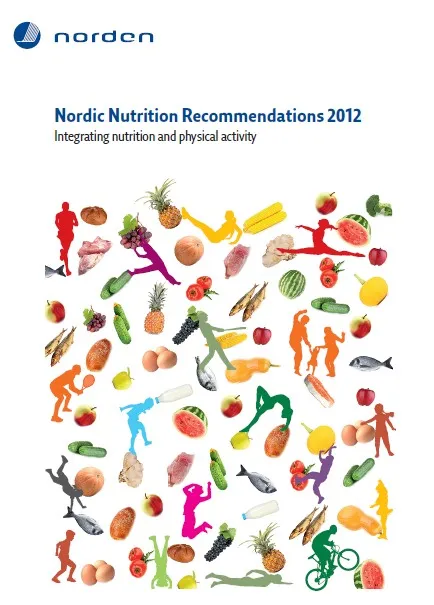
The Nordic countries collaborate in setting guidelines for dietary composition and recommended intakes of nutrients. Nordic Nutrition Recommendations 2012 is their 5th and latest publication. The recommendations emphasize food patterns and nutrient intakes that, in combination with sufficient and varied physical activity, are optimal for development and function of the body and that contribute to a reduced risk of certain diet-associated diseases.
One of the chapters focuses specifically on the characteristics of how to a sustainable diet. By considering factors such as food production characteristics, seasonal food supply, and food origin when selecting food items, the report argues that a diet that supports health can also be sustainable from an environmental and ecological perspective. One pivotal recommendation of the report is to eat a varied diet. The main question explored in the sustainable diets chapter is thus if it is possible to eat a varied, nutritionally adequate diet in a sustainable way. The chapter finds that a plant-based diet is preferable to one largely based on animal products. People who follow a diet close to the dietary guidelines generate a lower climate impact than the the Nordic average. Those who choose a diet with fewer meat and dairy products have less of an impact on the climate than those eating the present average diet. With a vegan diet, it is possible to halve the climate impact from what we eat.
Existing official dietary guidelines almost all coincide with the dietary changes necessary to achieve an environmentally sustainable diet. The report's main recommendations are to eat meat and fish with low environmental impacts; eat more dried beans, peas, lentils, and cereals; choose mainly field vegetables, root vegetables, potatoes, fruits, and berries that store well; choose perishable products when they are in season; and minimise waste.
The report highlights a potential conflict between sustainability and health in relation to fish and the use of dairy fat in the food industry. But the overall conclusion is that there are promising possibilities to eat nutritionally adequate and varied diets in a sustainable way.
To read the full report, click here.
You can read more reports and studies about sustainable diets here, sustainable consumption here and nutrition here.




Comments (0)